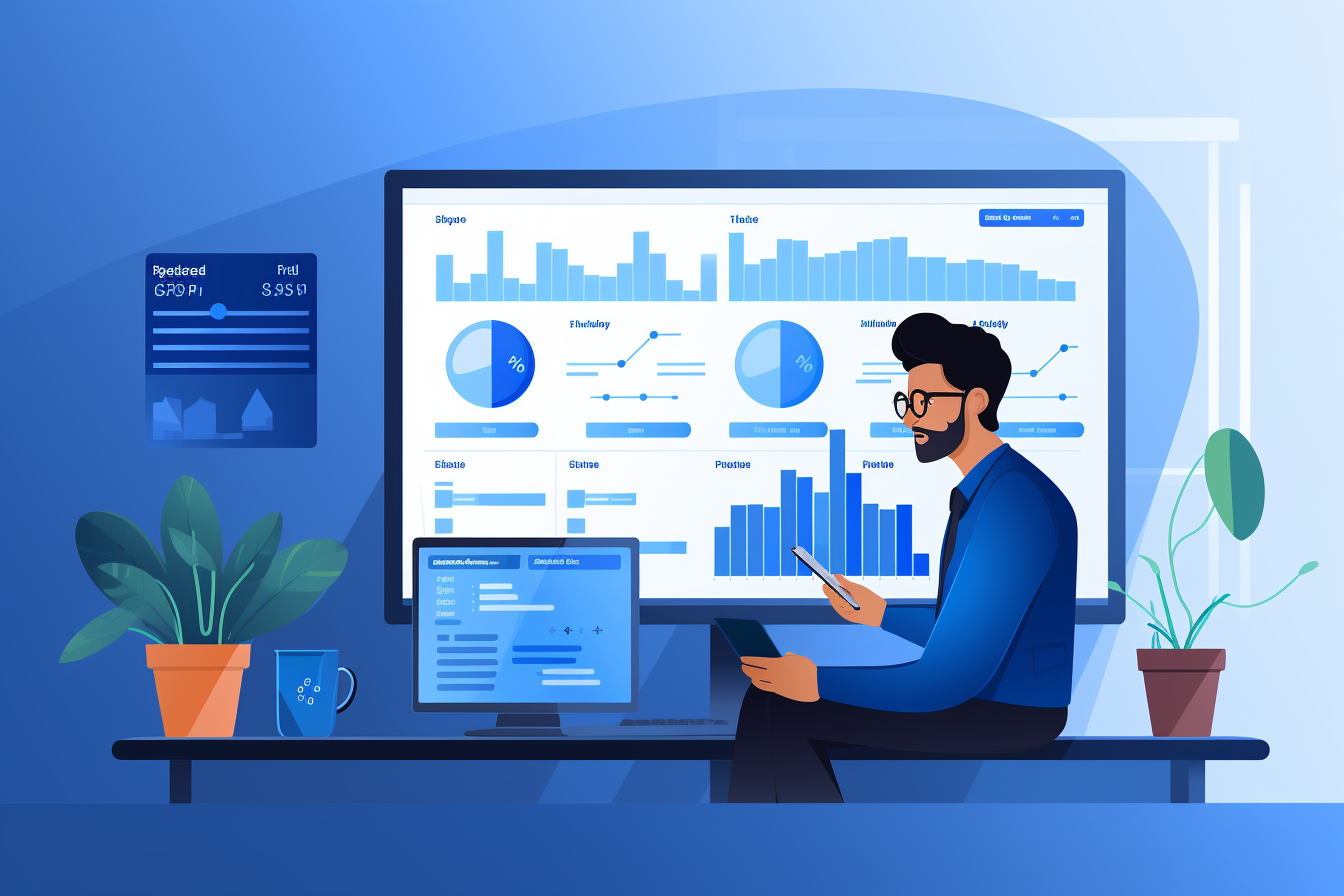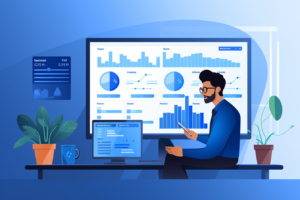Data literacy: A must-have for HR professionals in 2024
- 6 Min Read
By understanding, interpreting, and applying data effectively, HR professionals can drive evidence-based decision-making, enhance operational efficiency, and create measurable business impact.
- Author: HRD Connect
- Date published: Jan 8, 2024
- Categories

2024 will be the year of data for HR professionals. Data is already seen as the new oil by many business functions, and HR teams have a wealth of it at their fingertips, but arguably are yet to tap into it and use it to its full potential.
Gone are the days of gut feelings and intuition based decisions – this year, if senior HR leaders are to truly step into their strategic shoes, and claim a seat at the C-Suite level table, they will need to robust data-driven policy.
Data literacy in HR refers to the ability of HR professionals to understand, interpret, and apply data effectively. It goes beyond simply reading and comprehending data; it involves thinking critically about the information, extracting relevant insights, and using them to inform decision-making.
Data literate HR professionals can translate data into actionable strategies and create business value through their analytical skills. They can analyze HR metrics, reports, and other data sources to gain meaningful insights that drive HR processes and outcomes.
Why should HR teams care?
The 2021 Deloitte Global Human Capital Trends report also emphasizes the importance of broad data skills. It suggests that HR practitioners don’t need to become data scientists, but by having broad data literacy skills, they can support data-driven decision-making and exhibit the confidence to reason, communicate, and argue in a fact-based manner.
Data literacy is essential for HR professionals and businesses due to the abundance of data generated from digital processes. Here are some reasons why data literacy is crucial:
Evidence-based decision-making
Data literacy enables HR professionals to make evidence-based decisions. By analyzing and interpreting data, HR professionals can gather valuable insights that support their decision-making process. Instead of relying on intuition or assumptions, data-driven decisions are grounded in research and verification, reducing the risk of making costly mistakes.
For example, understanding which talent dimensions drive performance can help HR professionals make informed decisions about talent management strategies.
Operational efficiency
Data literacy allows HR professionals to identify operational inefficiencies and areas for improvement. By analyzing HR data, such as workforce costs, productivity metrics, and absenteeism rates, HR professionals can uncover patterns and trends that indicate areas of potential improvement.
This insight can lead to the implementation of targeted initiatives or changes that enhance operational efficiency and drive productivity.
Business impact through HR value chain
Strong data literacy skills enable HR professionals to create measurable business impact through the HR value chain. By analyzing and visualizing data, HR professionals can connect HR activities and processes to HR outcomes and organizational goals. This helps demonstrate the value of HR initiatives and their contribution to the overall success of the business.
Increased productivity and profitability
Organizations that embrace data literacy and use people analytics to inform HR functions and business decisions often experience higher-than-average profits.
Research has shown that such organizations see an 82% higher profit over three years compared to their low-maturity counterparts. By leveraging data insights, HR professionals can identify areas for improvement, optimize processes, and drive productivity and profitability.
Companies like Microsoft, IBM, and Merck have successfully built a data-driven culture in HR. Microsoft, for instance, has focused on measuring employee thriving rather than engagement, thanks to investment in HR, upskilling, and clear buy-in and storytelling from leaders.
Finding new opportunities
Data analytics offers HR professionals the opportunity to explore and solve problems while uncovering new prospects. By analyzing data from various sources, HR professionals can identify trends, patterns, and correlations that may lead to innovative solutions and opportunities for business growth.
Data-driven insights can also promote collaboration among different teams within the organization, fostering a culture of continuous improvement and innovation.
Exhibiting the right behaviour
HR professionals with strong data literacy skills exhibit certain behaviors that set them apart from their peers. These behaviors include:
-
Data literate HR practitioners can identify and set strategic metrics that measure the HR department’s contribution to the organization. They understand how to align HR goals with overall business objectives.
-
Data literate HR professionals have the ability to analyze and interpret HR and business data effectively. They can derive meaningful insights and use the data to make informed decisions. By combining human insight with data analytics, they can offer evidence-backed recommendations.
-
HR professionals with strong data literacy skills can identify opportunities to leverage data analysis to create value. They understand the power of data in influencing decision-making and can use it to drive positive outcomes.
-
Data literacy extends to the ability to effectively communicate data-driven insights to various stakeholders. HR professionals with strong data literacy can present data in a compelling and understandable manner, using visualizations and storytelling techniques to convey the message effectively.
-
Data literate HR professionals base their decisions and strategies on proven evidence and data. They understand how to analyze and interpret available data to extract relevant insights and use them to address organizational needs.
Developing the right skills
David Green, a renowned HR expert, emphasizes the importance of building a data-driven culture in HR. He suggests three key elements to this process: investing in the people analytics function, delivering value to the business, and embedding data-driven decision-making. Upskilling HR professionals in data literacy, data interpretation, and storytelling is a crucial part of this process.
Green also highlights the importance of democratizing data, which involves making data accessible and easy to use for decision-making. This requires investing in user-friendly tools, getting key sponsorship from the CHRO, and having a clear vision and mandate.
Developing data literacy skills is crucial for HR professionals who want to thrive in the digital age. Here are some steps they can take to enhance their data literacy:
-
Numerous online courses offer training in HR data literacy. These courses provide valuable insights and practical knowledge on data analysis, interpretation, and application in an HR context.
-
Adopt a data-friendly mindset and embrace the idea that data literacy enhances job performance and employability. Take advantage of any data literacy training or resources offered by your organization to develop your skills.
-
Clearly define the goals and objectives you want to achieve through data literacy. This will help guide your learning and development journey and ensure that you focus on acquiring the necessary skills and knowledge.
-
Stay abreast of the latest research and industry trends in data analysis and HR analytics. This will help you stay relevant and informed about best practices and emerging technologies in the field.
-
Look for ways to apply your data literacy skills in real-world scenarios. This could involve participating in data-driven projects or collaborating with colleagues who have expertise in data analysis. Practical experience will further enhance your data literacy skills.
-
Engage with data analytics leaders within your organization or industry. They can provide guidance, mentorship, and support in developing your data literacy skills. Collaborating with these experts can also help you gain practical insights and learn from their experiences.















